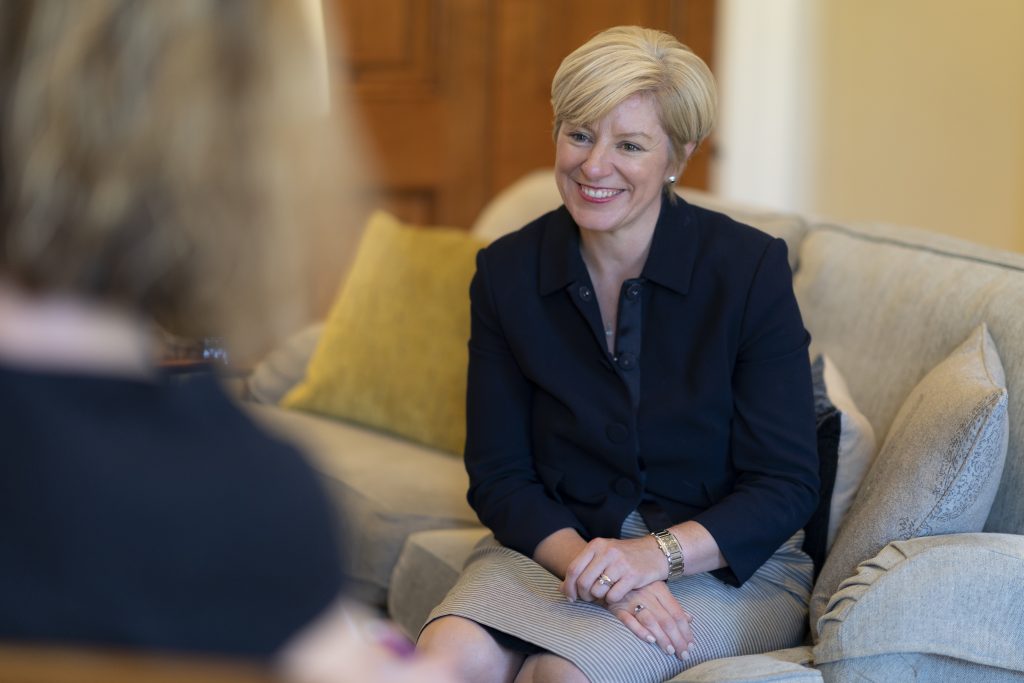The Importance of Digital Learning

Important School Information
Dear all,
As you will be aware, the Department of Education has instructed schools to close from Friday 20 March in response to Coronavirus. Wycombe Abbey will close in accordance with this and will remain closed until further notice. Thank you all for your understanding and support and I wish you and your families well during this time.
This e-bulletin was collated, including my article below, before the announcement was made but as it highlights many of the aspects of school life which are worthy of celebration we have decided to continue to publish it and we hope that you enjoy reading it.
Jo Duncan
The Importance of Digital Learning
‘I’ve come up with a set of rules that describe our reactions to technologies:
- Anything that is in the world when you’re born is normal and ordinary and is just a natural part of the way the world works.
- Anything that’s invented between when you’re fifteen and thirty-five is new and exciting and revolutionary and you can probably get a career in it.
- Anything invented after you’re thirty-five is against the natural order of things.’
Douglas Adams
It is an interesting thought that children who will be joining Wycombe Abbey in September 2020 have never known a world without Google, mobile phones or the iPad. I think it is fair to say that their expectations about technology are fundamentally different from ours as parents. It is my belief that we, as educators, have a responsibility to prepare young people for the world in which they will live and work.
The World Economic Forum has identified the Skills Demand for 2022 as:
- Analytical thinking and innovation
- Active learning and learning strategies
- Creativity, originality and initiative
- Technology design and programming
- Critical thinking and analysis
- Complex problem solving
- Leadership and social influence
- Emotional intelligence
- Reasoning, problem-solving and ideas
- Systems analysis and evaluation
Recently, I had the pleasure of welcoming Lord Bilimora of Chelsea to the Wycombe Management Conference, an event which has been running for Sixth Form students at Wycombe Abbey and RGS since 1992. It was pioneering when it was set up and continues to be so today – you can read more about it here. In his opening address, Lord Bilimora made a comment about creativity, saying that when he was at school he was not considered, and therefore did not consider himself, creative because he could not draw. But he went on to talk about creativity from a business perspective which is not about being able to draw; it is a way of thinking which seeks to find solutions to problems and come up with new ideas and it often results from difficulty and resistance rather than from an easy journey. His story was fascinating and a great insight for the audience into what many of the above skills look like in practice.
Teaching, learning and environment are interconnected and underpinned by vision and culture. If we are going to prepare girls effectively for the future we need to ensure that we are using the tools which are available to us to do so. It seems to me that technology, well used, can enhance a creative approach and enhance our pupils learning experience on a daily basis. To that end, I am delighted to tell you that I have appointed a Director of Digital Learning who will join us in September and lead on this area.
I am not an expert, but as a parent and as a Head, I am excited by the possibilities of technology in the classroom. As Wycombe Abbey looks towards its 125th anniversary in 2021, digital learning and innovation will be an important aspect of our new strategic plan and I look forward to sharing more details with you as these are developed.
Jo Duncan MA (St Andrews), PGCE (Cantab)
Headmistress